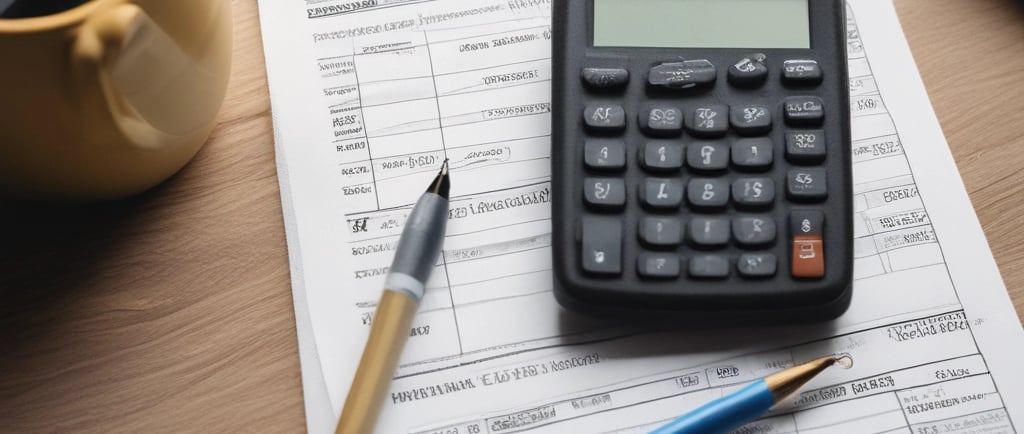Why It’s Important to Track Your Spending and Stick to a Budget
Struggling with money stress? Learn why tracking spending and budgeting are key to gaining control, avoiding debt, and reaching your financial goals with confidence and discipline.
9/25/20252 min read


Let’s be honest: money can be stressful. Whether you’re trying to pay off debt, save for a big goal, or simply stop living paycheck to paycheck, the way you manage your money plays a major role in your financial well-being. And at the heart of good money management are two essential habits: tracking your spending and sticking to a budget.
If you're not doing these consistently, you're not alone — but it might be costing you more than you realize. Here's why these habits matter and how they can help you take control of your financial future.
1. You Gain Awareness of Where Your Money Goes
Most people are surprised when they actually see where their money goes each month. Small, daily expenses — like that $5 coffee, takeout lunches, or streaming subscriptions — can silently eat away at your income.
Tracking your spending helps you uncover these "money leaks" and gives you a clear picture of your spending patterns. Once you know where your money is going, you can make informed decisions about what to cut, what to keep, and what to prioritize.
2. It Helps You Avoid Debt and Live Within Your Means
Budgeting is not about restriction — it's about intention. When you create a budget, you're giving every dollar a purpose. This helps prevent overspending, especially on credit cards, which can lead to high-interest debt that’s hard to escape.
By sticking to a budget, you’re more likely to live within your means and avoid the stress of owing more than you can afford to pay back.
If you’re just getting started, using a simple budget planner notebook can make tracking your spending way easier. It helps you stay organized, build awareness, and stick to your goals.
🟩 View on Amazon (affiliate link) (as an Amazon Associate, I earn from qualifying purchases.)
3. It Keeps You Focused on Your Financial Goals
Whether you're saving for a vacation, a new home, or building an emergency fund, budgeting helps keep your eyes on the prize. Without a clear plan, it’s easy to let short-term wants derail your long-term goals.
Tracking your spending ensures you’re staying on course, and your budget serves as a roadmap to help you reach your destination faster.
4. It Builds Discipline and Financial Confidence
When you take control of your finances, something powerful happens you start to feel more confident and less anxious about money. Budgeting and tracking aren’t just tasks — they’re habits that build discipline over time.
You start making smarter financial decisions, avoiding impulse purchases, and feeling empowered by your choices instead of guilty about them.
5. It Prepares You for Unexpected Expenses
Life happens — and often, it’s expensive. Whether it's car repairs, medical bills, or a job loss, unexpected expenses can knock you off your feet if you're not financially prepared.
Tracking and budgeting allow you to set aside emergency savings so that you're ready when the unexpected hits. It’s not about predicting the future but being prepared for it.
Final Thoughts: Start Small, Stay Consistent
You don’t need to be a financial expert to start budgeting or tracking your expenses. Start simple: write down your expenses for a week or try a budgeting app to help you stay on track. What matters most is consistency.
Over time, these small steps will lead to big improvements in your financial health. You'll feel more in control, less stressed, and more capable of reaching the goals that matter to you.
Remember: every dollar you track is a step toward financial freedom.
Disclaimer: This article is for informational purposes only and should not be considered financial advice. Always consult a licensed financial advisor for advice specific to your situation.
© 2025. All rights reserved.
